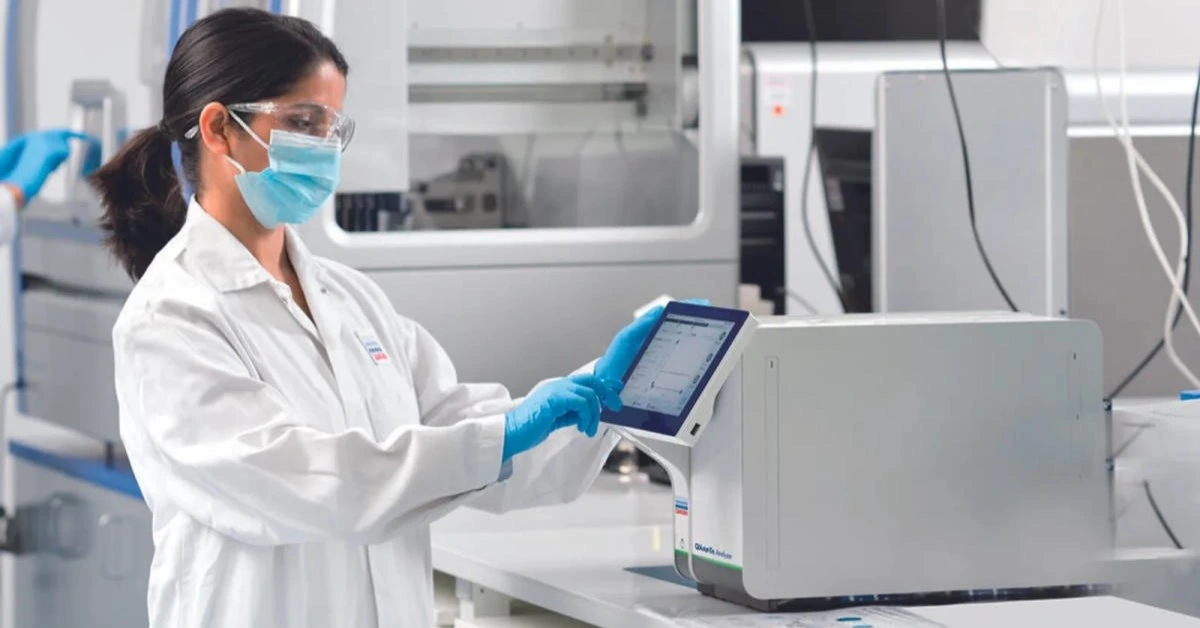
GERMANY – QIAGEN, a German-founded multinational provider of sample and assay technologies for molecular diagnostics has broadened its collaboration with AstraZeneca to advance and commercialize companion diagnostics (CDx) aimed at guiding treatment decisions for chronic diseases.
This expanded partnership will focus on developing and validating a genotyping assay using QIAGEN’s QIAstat-Dx syndromic testing platform, which can deliver quick, targeted diagnostics.
“This expansion strengthens our molecular diagnostics business,” QIAGEN noted.
The new genotyping assay will enable specialty care providers to conduct genetic testing during routine patient exams, potentially speeding up decision-making on the suitability of AstraZeneca’s genomically targeted therapies.
This approach supports QIAGEN’s expertise in CDx commercialization, aiming to deliver tailored molecular testing that meets specific clinical needs.
“This collaboration will allow healthcare providers to better assess patient profiles and provide more precise therapies,” QIAGEN shared in a press release.
How the QIAstat-Dx system works
QIAGEN’s QIAstat-Dx platform, designed for use in clinical laboratories, uses a cost-efficient, single-use cartridge system with integrated sample processing and on-board reagents.
By leveraging multiplex real-time Polymerase Chain Reaction (PCR), the platform can detect and differentiate between multiple biomarkers within an hour.
The QIAstat-Dx system provides accessible cycle threshold (Ct) values and amplification curves, offering enhanced insights that support more comprehensive diagnoses compared to traditional PCR methods.
As of late 2023, QIAGEN had over 4,000 of these systems installed worldwide, underscoring its growing influence in clinical testing.
Leadership in CDx and precision medicine
QIAGEN has established itself as a leading player in the CDx space, partnering with biotech and pharmaceutical companies to deliver diagnostic solutions that help identify genetic markers for precise treatment guidance.
With more than 30 master collaboration agreements, QIAGEN has a robust pipeline in precision medicine, with technologies spanning PCR, digital PCR, and next-generation sequencing (NGS).
The expanded agreement with AstraZeneca will move beyond oncology, covering a broader range of chronic disease therapies and personalized treatment approaches.
Additionally, QIAGEN has collaborations with other organizations, including Neuron23 and Helix, to further extend its CDx offerings into various disease areas outside of oncology.
A growing market for companion diagnostics
According to Roots Analysis, the global CDx development market is valued at approximately $570 million in 2024, with an anticipated annual growth rate of 11% by 2035.
This expansion reflects the growing demand for personalized treatment approaches, with CDx tests enabling more targeted therapeutic strategies, improved safety, and better tracking of treatment responses.
These capabilities play a critical role in the evolution of the healthcare industry toward personalized medicine, a trend that is likely to fuel significant growth in the CDx market over the next decade.
Advancements in QIAGEN’s molecular diagnostics
QIAGEN has also been making strides in molecular diagnostics, expanding its syndromic testing platform for various applications.
In June 2024, the company launched the QIAstat-Dx Gastrointestinal Panel 2 in the United States, following FDA approval.
This panel expands QIAGEN’s syndromic testing offerings, adding to the previously released QIAstat-Dx Respiratory Panel Plus, which can detect 21 different pathogens responsible for respiratory infections.
Both the gastrointestinal and respiratory panels use cost-effective cartridges that integrate seamlessly with the QIAstat-Dx Analyzer 1.0.
XRP HEALTHCARE L.L.C | License Number: 2312867.01 | Dubai | © Copyright 2025 | All Rights Reserved